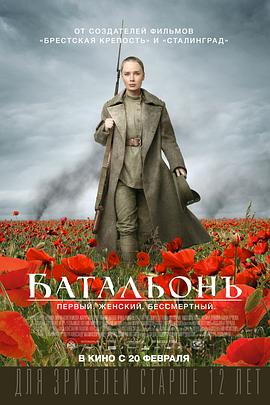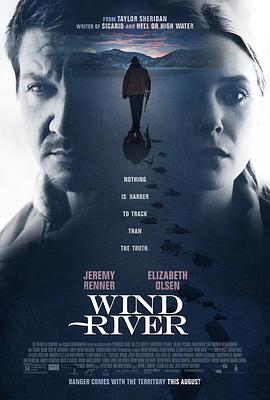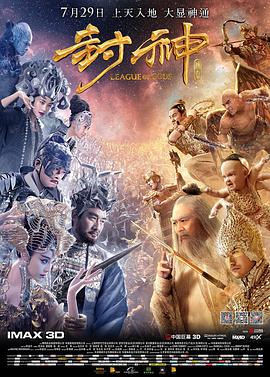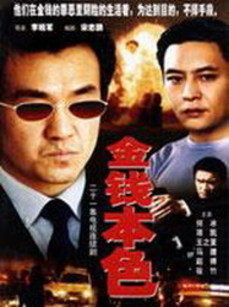剧情简介
故事发生在美国西弗吉利亚的亨廷顿小镇上,那里有一支令全镇人民骄傲不已,同时也在全美国大学校队中位处顶尖的马歇尔大学橄榄球队。长久以来,马歇尔大学橄榄球队早已成为了当地历史的一部分,一代又一代队员们坚韧不拔的运动精神在时间和汗水中不断的被传承着。Finally got to see We are Marshall here in Huntington, WV, the very town this movie has as its setting. I like it a lot, but It is very difficult to see it as being just a movie, because the movies is so much about the town, the university, and even somebody you may know or meet here. You cannot maintain the distance that could be afforded to other movies when appreciating them. Yet this feeling is special.
The movie is emotionally charged most of the time, as it should be, given the fact that so many people died and a team rose from ashes. It oscillates between being poignant and funny. The pain part was very well captured by Mathew Fox, who plays Red Dawson, the assistant coach, who was tormented by the fact that he happened to have missed the disaster while the rest of his team died.
The other Mathew who played the head coach seemed to lack some emotional depth in the role he played. That might be natural, because the role he portrayed had had nothing to do with Marshall before accepting the role as head coach. Yet at other times, it is just Mathew the "star" coming out. That effect could be diminished if the coach is played by a less well-known guy. Or have I been way too saturated with all the coverage about Mathew the superstar that it is now impossible to scratch the actor to see the acted?
Even as someone who speaks English as a foreign language, I can tell that his language is somewhat banal as some critics have pointed out. It is too “movie-like”, so to speak. However, there are also bursts of freshness. For instance, when he gets President Dedmon to visit NCAA in person by asking Dedmon how he proposed to his wife.
But to be fair, Mattew did a good job showing the development of his character. Jack the head coack is actually the one transformed by the whole experience. When he makes that speech in the cemetery, one sees the transformation reach a climax.
My favorite is the character of Don Dedmon. He is portrayed into a rounded, developed, and rich character. In him you see the mixture of the somewhat clumsy academic, a really hard-working leader, and a converted Herd fan. The rise of the football team seemed to have had the greatest impact on him.
At the end of the movie, it is mentioned that the Young Thundering Herd lost more games in the 70s than any other football program in the nation. However, the glory comes in the 90s, when the team won championships and produced national football stars. That line has the potential of becoming something really great. But it was dismissed too quickly. There is really a good point in there: It takes time to actually make a program work. More importantly, it takes incubation, nurturing, and even patience in years and years of tireless work. Yet these are not materials for Hollywood. There is less drama in them. Instead, the movie turns to a spike of glory in those years that were not actually chracterized by winning games. The real thundering glory, I believe, is the laying of foundations in these early years in spite of pressures and losses. Hemmingway says courage is grace under pressure. So is glory.
The movie is emotionally charged most of the time, as it should be, given the fact that so many people died and a team rose from ashes. It oscillates between being poignant and funny. The pain part was very well captured by Mathew Fox, who plays Red Dawson, the assistant coach, who was tormented by the fact that he happened to have missed the disaster while the rest of his team died.
The other Mathew who played the head coach seemed to lack some emotional depth in the role he played. That might be natural, because the role he portrayed had had nothing to do with Marshall before accepting the role as head coach. Yet at other times, it is just Mathew the "star" coming out. That effect could be diminished if the coach is played by a less well-known guy. Or have I been way too saturated with all the coverage about Mathew the superstar that it is now impossible to scratch the actor to see the acted?
Even as someone who speaks English as a foreign language, I can tell that his language is somewhat banal as some critics have pointed out. It is too “movie-like”, so to speak. However, there are also bursts of freshness. For instance, when he gets President Dedmon to visit NCAA in person by asking Dedmon how he proposed to his wife.
But to be fair, Mattew did a good job showing the development of his character. Jack the head coack is actually the one transformed by the whole experience. When he makes that speech in the cemetery, one sees the transformation reach a climax.
My favorite is the character of Don Dedmon. He is portrayed into a rounded, developed, and rich character. In him you see the mixture of the somewhat clumsy academic, a really hard-working leader, and a converted Herd fan. The rise of the football team seemed to have had the greatest impact on him.
At the end of the movie, it is mentioned that the Young Thundering Herd lost more games in the 70s than any other football program in the nation. However, the glory comes in the 90s, when the team won championships and produced national football stars. That line has the potential of becoming something really great. But it was dismissed too quickly. There is really a good point in there: It takes time to actually make a program work. More importantly, it takes incubation, nurturing, and even patience in years and years of tireless work. Yet these are not materials for Hollywood. There is less drama in them. Instead, the movie turns to a spike of glory in those years that were not actually chracterized by winning games. The real thundering glory, I believe, is the laying of foundations in these early years in spite of pressures and losses. Hemmingway says courage is grace under pressure. So is glory.













后继有人影评
The movie is emotionally charged most of the time, as it should be, given the fact that so many people died and a team rose from ashes. It oscillates between being poignant and funny. The pain part was very well captured by Mathew Fox, who plays Red Dawson, the assistant coach, who was tormented by the fact that he happened to have missed the disaster while the rest of his team died.
The other Mathew who played the head coach seemed to lack some emotional depth in the role he played. That might be natural, because the role he portrayed had had nothing to do with Marshall before accepting the role as head coach. Yet at other times, it is just Mathew the "star" coming out. That effect could be diminished if the coach is played by a less well-known guy. Or have I been way too saturated with all the coverage about Mathew the superstar that it is now impossible to scratch the actor to see the acted?
Even as someone who speaks English as a foreign language, I can tell that his language is somewhat banal as some critics have pointed out. It is too “movie-like”, so to speak. However, there are also bursts of freshness. For instance, when he gets President Dedmon to visit NCAA in person by asking Dedmon how he proposed to his wife.
But to be fair, Mattew did a good job showing the development of his character. Jack the head coack is actually the one transformed by the whole experience. When he makes that speech in the cemetery, one sees the transformation reach a climax.
My favorite is the character of Don Dedmon. He is portrayed into a rounded, developed, and rich character. In him you see the mixture of the somewhat clumsy academic, a really hard-working leader, and a converted Herd fan. The rise of the football team seemed to have had the greatest impact on him.
At the end of the movie, it is mentioned that the Young Thundering Herd lost more games in the 70s than any other football program in the nation. However, the glory comes in the 90s, when the team won championships and produced national football stars. That line has the potential of becoming something really great. But it was dismissed too quickly. There is really a good point in there: It takes time to actually make a program work. More importantly, it takes incubation, nurturing, and even patience in years and years of tireless work. Yet these are not materials for Hollywood. There is less drama in them. Instead, the movie turns to a spike of glory in those years that were not actually chracterized by winning games. The real thundering glory, I believe, is the laying of foundations in these early years in spite of pressures and losses. Hemmingway says courage is grace under pressure. So is glory.